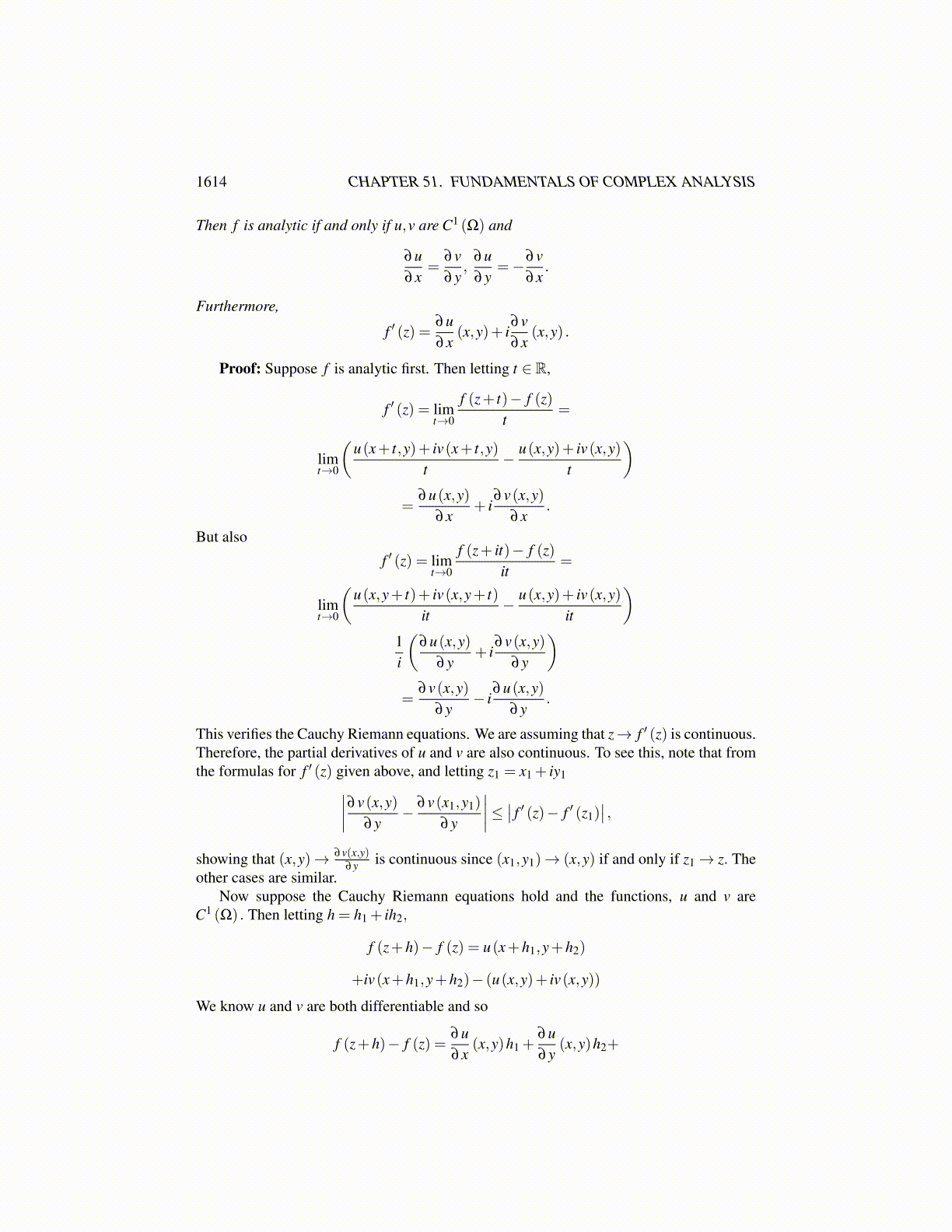
1614 CHAPTER 51. FUNDAMENTALS OF COMPLEX ANALYSIS
which is the same as saying |z−a|< 1/ρ where ρ ≡ limsupk→∞ ||ak||1/k. Let R = 1/ρ .
Now suppose r1 < R. Consider |z−a| ≤ r1. Then for such z,
||ak|| |z−a|k ≤ ||ak||rk1
and
lim supk→∞
(||ak||rk
1
)1/k= lim sup
k→∞
||ak||1/k r1 =r1
R< 1
so ∑k ||ak||rk1 converges. By the Weierstrass M test, ∑
∞k=1 ak (z−a)k converges uniformly
for |z−a| ≤ r1. Therefore, f is continuous on B(a,R) as claimed because it is the uniformlimit of continuous functions, the partial sums of the infinite series.
What if ρ = 0? In this case,
lim supk→∞
||ak||1/k |z−a|= 0 · |z−a|= 0
and so R = ∞ and the series, ∑ ||ak|| |z−a|k converges everywhere.
What if ρ = ∞? Then in this case, the series converges only at z = a because if z ̸= a,
lim supk→∞
||ak||1/k |z−a|= ∞.
Theorem 51.1.4 Let f (z) ≡ ∑∞k=1 ak (z−a)k be given in Theorem 51.1.3 where R > 0.
Then f is analytic on B(a,R) . So are all its derivatives.
Proof: Consider g(z) = ∑∞k=2 akk (z−a)k−1 on B(a,R) where R = ρ−1 as above. Let